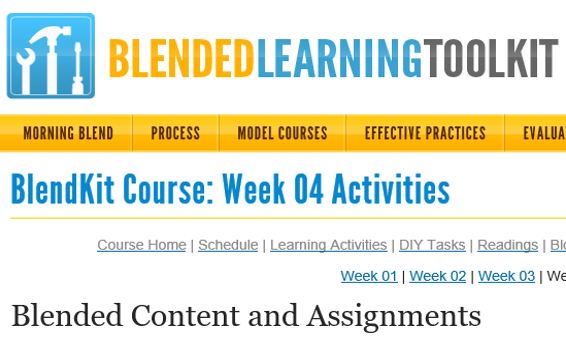A red rag of a headline if ever I read one. Reel me in Professor Rob Klassen. The summary of the article can be gleaned from the comments. These can be summarized as, “of course teaching is more than academic pedigree,” and “there is insufficient reference to the context within the scenario-based question.” Interesting, there was a sense of defence from the profession without more effective alternatives. Of course, it didn’t help, the this matador was already dealing with aggravated readers.
Can you spot a good teacher from their characteristics?
The article posit that teaching is “often portrayed as something that’s too magical and cryptic to decode.” Remember that when you are considering the key messages in the article.
That Dr Allison Atteberry study found teachers who were most effective tended to maintain this over time. Similarly, those in the bottom group for effectiveness stayed there, even when they moved schools.
Teachers effectiveness is not impacted by the setting in which they teach?
One of the key contradictions, as I read it, was the point that
“…Academic ability (hence the UK government’s introduction of tougher entry requirements for teacher training in 2013) is one of factors that impact on teacher effectiveness” only for the article to later then emphasise “teacher-student relationships outweighed the contribution of teachers’ subject knowledge, teacher training, or home and school effects.”
This set aside, I continued to be distracted by the opening question.
What would you do in the following situation?
As students in your classroom begin a writing task, one of them, Kata, starts throwing paper around and distracting the others. You know from previous incidents that Kata often becomes frustrated when she does not understand how to complete activities; she often displays this by being disruptive.
Would you …
a) Ask her to leave the class?
b) Show her how to get started on the task?
c) Encourage her by telling her that she is capable of completing the task?
d) Ask a passing teacher to talk to her?
A question that I answered “a mixed of b and c, with a thought to when and where in the lesson are we. First lesson of the day or last lesson? Is this the starter task or the main task? Is this a lesson Kata enjoys, usually? How did Kata do last lesson? What other cues can I explore from her self-presentation, her behaviours, her preparedness for the lesson.
Contextual interviewing or scenario-based questions or Situational Judgement Test (SJT) is a technique I am aware of though knew relatively little about or it’s application to education. So off I trotted to learn about SBQs. From the Guardian, to Professor Klassen’s University of York page, to the Teacher Selection Project. Ending at International Journal of Educational Psychology.
There is little to contest when Klassen argues that teacher training providers need accurate, reliable, and evidence-based methods to select prospective teachers because effective teachers make a long-term impact on student academic achievement and well-being (Hanushek & Rivkin, 2012), add a nation’s educational, social, and economic well-being (Hanushek & Rivkin, 2012). Devising a valid selection procedures is, therefore, the first step in “improving teaching quality in a range of international contexts.”
I would also agree that identifying the necessary cognitive dimensions (e.g., subject area knowledge, reasoning ability, and literacy and numeracy skills) of prospective teachers is relatively straightforward. However, assessing the essential non-cognitive attributes, interpersonal skills, motivational tendencies, and personality traits, shown to be crucial for successful teaching (Rimm-Kaufman & Hamre, 2010), is much more challenging to measure reliably.
These challenges are off-set by the advancement of research on non-cognitive attributes of effective teachers, methodological
advances in selection procedures, most notably the emergence of SJTs, which have shown robust predictive and incremental validities in other professional fields such as medical and dental training.
In support of SJTs, Klassen highlights that SJTs measure implicit traits and attributes formed through a combination of a person’s experience and personal dispositions. Hence these responses are not easily masked. Second, SJTs are machine-markable and resource SJTs are complementary to interviews.
Of the drawbacks discussed, some of the applicants in Klassen’s trials stated a preference for “higher-fidelity methods| (such as teaching simulations) over “lower fidelity” methods (such as SJTs). There were concerns of “not being fairly evaluated” because they perceived SJT scenarios as based on classroom experience (something most did not have yet).” A issue even less application, if SJTs were to be used for interviewing qualified teachers. Interestingly, the comments felt these situations were not sufficiently defined.
I ended the day with a short email to Prof Klassen. I am of the opinion that the interviews processes I have currently experience and those I have led as a school leader have not been very reliable or insightful. I am keen to learn more about Klassen’s work and the use of SJTs, if only as a one component of exploring “teacher potential” or an interview process. So I emailed Prof Klassen. I asked two key questions
Can you outline how the preliminary pilot (see the study link below) was is capable of “differentiating between applicants?” A measure of effectiveness? Retention? Staff well-being?
Second I asked if he could suggest some SJTs type questions to ask when interviewing / hiring qualified teachers.
An interested school leader. Meanwhile, we seek out next our Mary Poppins appointment.
Prof Klassen kindly offered a response – noting that in identifying potential trainer teachers –
we suggest that academic ability is important, but other ‘non-academic’ tasks are also important. So if you look at it as an equation, you’d want academic ability + subject knowledge + interpersonal skills (+ experience) = good teaching. But this is a bit reductive, since ‘interpersonal skills’ covers a lot of ground (we suggest: motivation, engagement, communication, resilience, etc.). Some things are easy to measure (academic ability and subject knowledge), but the ‘holy grail’ is being able to reliably measure the interpersonal skills in a cost-efficient way. This isn’t so much of a problem in a school setting, where you choose 1/5 or whatever it might be, but at large systems-level, it’s an issue since, for example, it’s really expensive for large systems to interview many, many candidates.
Klassen, RM, Durksen, TL, Rowett, E & Patterson, F 2014, ‘Applicant reactions to a situational judgment test used for selection into initial teacher training‘ International Journal of Educational Psychology, vol 3, no. 2, pp. 104-124., 10.4471/ijep.2014.07.


